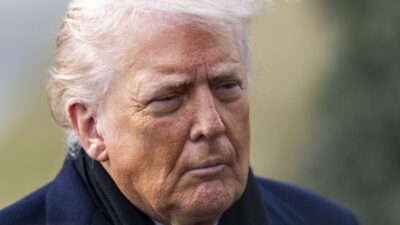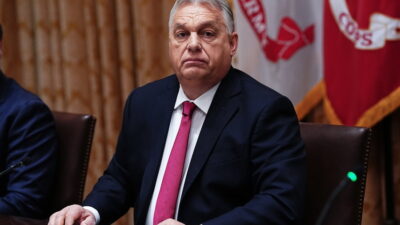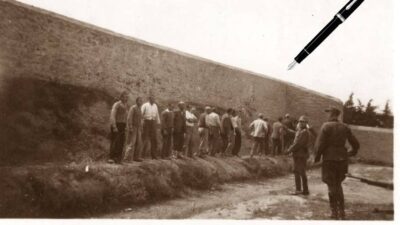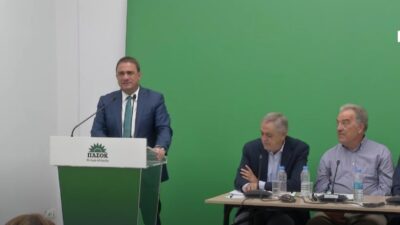Maria-Daniella Marouda: Is the decision to assassinate Hariri linked to the double explosion in Beirut?
05/08/2020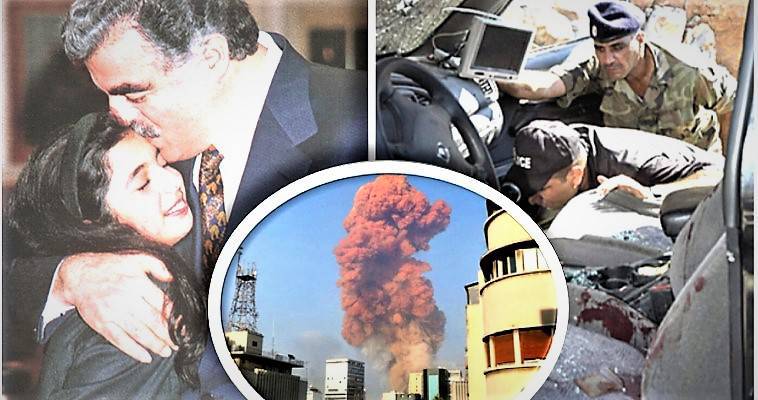
A few days before the August 4 disaster in Beirut, which left hundreds dead and thousands injured, the International Criminal Tribunal for Lebanon, based in The Hague, had announced that it would make public the judges’ verdict for those responsible for the terrorist attack on Rafik Hariri, then Prime Minister of Lebanon, on Friday, August 7.
No one expected that the decision that has been expected for 15 years will be announced (?) during this explosive situation of a Lebanon in prolonged division, in the vortex of a total economic crisis, and also in the midst of anti-corruption protests in recent months and against the government management of the Covid 19 pandemic.
On February 14, 2005, a truck loaded with 3,000 kilograms of high-yield explosives exploded as Rafik Hariri’s convoy passed by Beirut’s Saint Georges Beach Hotel, killing him and 21 others. The blast that killed the former Sunni leader of Lebanon, with strong ties to the West, had sparked unrest, mass demonstrations and a wave of international pressure.
Syria had been forced to end its 29-year military presence in Lebanon following a report by a UN special investigative mission linking Assad’s Damascus to the bombing. Political and religious tensions erupted within Lebanon and throughout the Middle East, especially as the investigation team began to look into possible links to the death of Hariri of Hezbollah and Sunni Arab Gulf states opposed to Tehran.
The decision of the Special Court on the assassination of Hariri comes at a time when Lebanon is collapsing, while the latest disaster in the port of Beirut intensifies the scenario of disintegration of the country. Although few expect defendants to surrender if convicted, there is no doubt that such a conviction will further widen the gap in a country that has been walking the tightrope since 1975.
Hariri’s supporters, including his son Saad, who also served as Prime Minister said they were not seeking vengeance but respect for the court decision. As his son Hariri characteristically announced a few days ago: “We … look forward to August 7th becoming a day of truth and justice for Lebanon, but also a day of punishment for criminals.”
Special Tribunal for Lebanon: a controversial institution
It should be noted that the Special Tribunal for Lebanon (which we have to wait and see if it dares to announce the long-awaited decision after the disaster in Beirut) is one of the most controversial institutions in international criminal justice. On the one hand, it does not fall into the category of purely international courts, neither methodologically nor formally, and on the other hand, it was instituted only to try the Hariri case, with extremely political criteria.
Its establishment by decision of the UN Security Council, in cooperation with the Lebanese government, had attracted the interest of international relations specialists. Institutionally because Antonio Casesse was appointed President of the Court, bequeathed to the Court the only international court decision to date on what constitutes terrorism (in the absence of another uniform definition). Politically, because it is the greatest example of the expansion of international criminal justice in international relations in an overt and revealing way at the same time.
It is indicative that for years the court had no suspects, and no specific charges. Although it states that it applies rules of international criminal procedure, it is in fact another way of intervening within a state. Elite transactions, decrypted conversational tapes that are blackmail material between rivals, amnesty, amnesia etc etc that are expected to be revealed in the coming days.
The definition of the cross-border crime of terrorism
However, in an extremely important decision of the Court of Appeal, which was adopted unanimously on February 12, 2011, the Judges presided over by the Cassese, answered five legal questions submitted by the First Instance Division of the Special Tribunal for Lebanon to the Court of Appeal before the relevant trials began. Among them is the definition of terrorism, on the basis of which the suspects were tried.
According to the Court of Appeals, the Special Court must apply the definition of terrorism according to Lebanese law (Article 2 of the Code of Criminal Procedure), which terrorism, according to Article 314 of the Lebanese Penal Code, is an act intended to cause terror, through the use of means that expose the public to danger “, ie “use of explosives, incendiary, poisonous or other gases, microbes or other toxins “.
Also according to the Court of Appeals, the Special Court must follow an expanded definition, which reflects customary international law, according to which the crime of terrorism has the following elements:
- committing a criminal act, or threatening to do so,
- intent to cause terror among the population, or to force a national or international authority to take action, or to refrain from taking action, and
- a cross-border element, which may relate to the interconnection of perpetrators, victims or means used by more than one state, but it may also relate to the significant impact that one country’s terrorist act has on another.
It is clear that with such a definition, references to third countries (Syria, Iran, or Israel) are taken for granted, with the risk of further ignition to the region.
Purpose of the decision: to expose political corruption
This controversial Special Tribunal for Lebanon, judging in absentia four suspects, who were on good terms with Hezbollah, seems to have had a single goal from the beginning: to expose the corruption of the country’s leaders and politicians, through a vast network of wiretappings handed over to Judges, left the entire political system of the country exposed to the political appetites of other Middle Eastern countries. We do not need to explain why when the accusations appeared the country embarked on another great adventure.
According to the texts themselves, the suspects (members of the powerful Iranian-backed organization) were tried in absentia on charges of “planning and organizing the 2005 bombing, which killed the then prime minister who led Lebanon’s reconstructionafter the long civil war “. In particular, Salim Jamil Ayyash, Hassan Habib Merhi, Assad Hassan Sabra and Hussein Hassan Oneissi are accused of conspiracy and committing a terrorist attack. Ayyash is accused of committing a terrorist act, murder and attempted murder.
Prosecutors said data gathered from telephone networks (eavesdropping) showed that the defendants called each other from dozens of cell phones to monitor Hariri in the months before the attack and coordinate their movements on the same day. It is also interesting that the accused have not appeared in public for years.
How accidental was the huge explosion
Is it possible that the explosion in the port was accidental three days before the announcement of the decision? An unequivocal answer cannot be given in the absence of evidence. One can, however, estimate that what is happening in Lebanon in recent days is probably not accidental. We remind you of the resignation of Hariri’s son in October 2019, after he failed to meet the demands of protesters who were protesting against corruption by the ruling elite.
His successor, Hassan Diab, backed by Hezbollah and its allies, says Lebanon must avoid further unrest as a result of the court ruling. “Conflict resolution is a priority,” Diab said in a tweet last week.
So how coincidental is yesterday’s huge explosion when Hezbollah openly questions the integrity and neutrality of the court? Hezbollah often states that its work was corrupted by false witnesses, but also by the dependence of evidence on telephone records that could have been manipulated by Israeli spies arrested in Lebanon. As mentioned above, anyone can have suspicions, but at the moment there is no evidence. The “land of cedars” once again in its history needs support. Dynamic, substantial and immediate. Will Lebanon find it?
